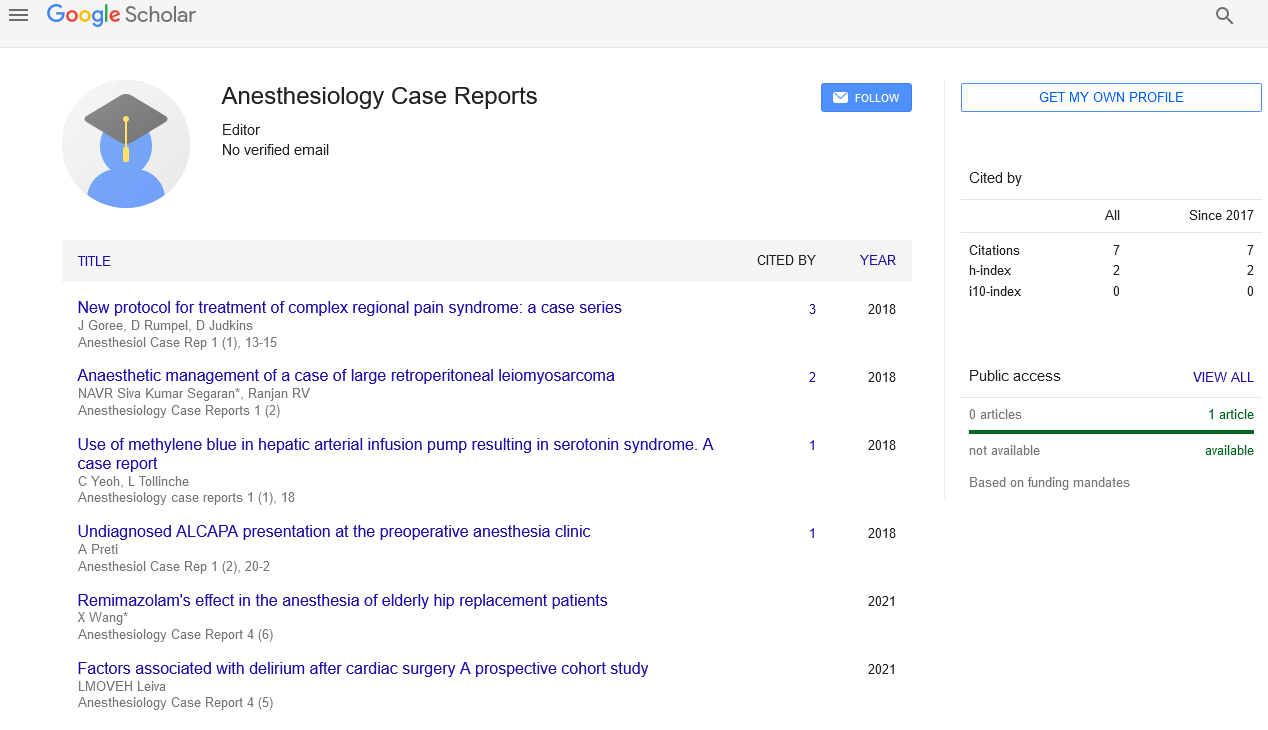
Sign up for email alert when new content gets added: Sign up
Abstract
Is the industry heading towards undue sophistication?
Author(s): Rajswee Rana*Introduction: Patients with cerebral palsy present for a wide variety surgeries, ranging from general surgical conditions to particular interventions. Understanding the etiology, clinical manifestations and therapy of Cerebral Palsy (CP) will improve perioperative care for these patients.
Case report: A 24 year female with spastic cerebral palsy was posted for excisional arthroplasty of left hip for recurrent left sided hip dislocation. The patient experienced multiple episodes of sinus bradycardia shortly after induction. The patient's jaw was completely relaxed without the use of any muscle relaxants. At first, adequate tidal volume was being delivered to the patient by the modern anaesthesia machine but on positioning the patient lateral, significant amount of audible leak was present. On switching to manual ventilation, adequate tidal volume was being delivered to the patient.
Discussion: The poor nutritional status or a lifelong non-ambulatory status compounded by lack of muscle and fat deposits in the body may be the reason behind the episodes of bradycardia and complete relaxation of the jaw without the use of muscle relaxants. Though adequate tidal volume was being delivered at the beginning of the induction, on lateral position remarkable amount of leak was present. The modern sophisticated anaesthetic work stations with the ascending bellow technology are programmed to detect even minimal amount of leak which can hinder the delivery of adequate tidal volume to the patient in certain instances. This may be the reason why the patient was getting ventilated manually on the piston type of ventilator technology overriding the in built automation of the machine.
Conclusion: The wide range of clinical picture varying considerably can result in an unpredictable response of patients with CP to anaesthesia making induction and maintenance of anaesthesia and haemodynamic stability quite challenging to an anaesthetist. Furthermore, modern technology might not necessarily work well in every situation. One must be always willing and ready to revert back to old school depending on the situation.
Full-Text | PDF




